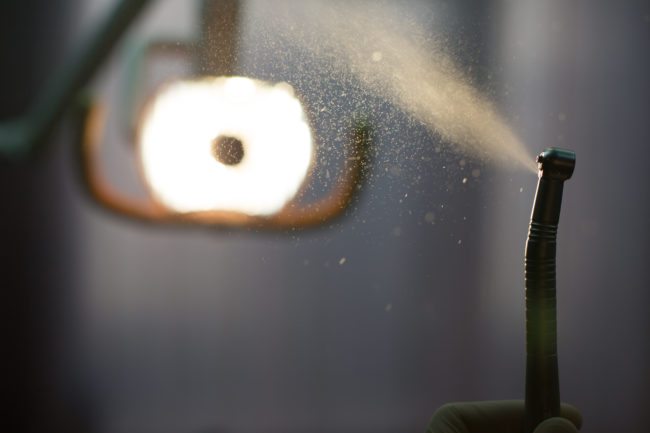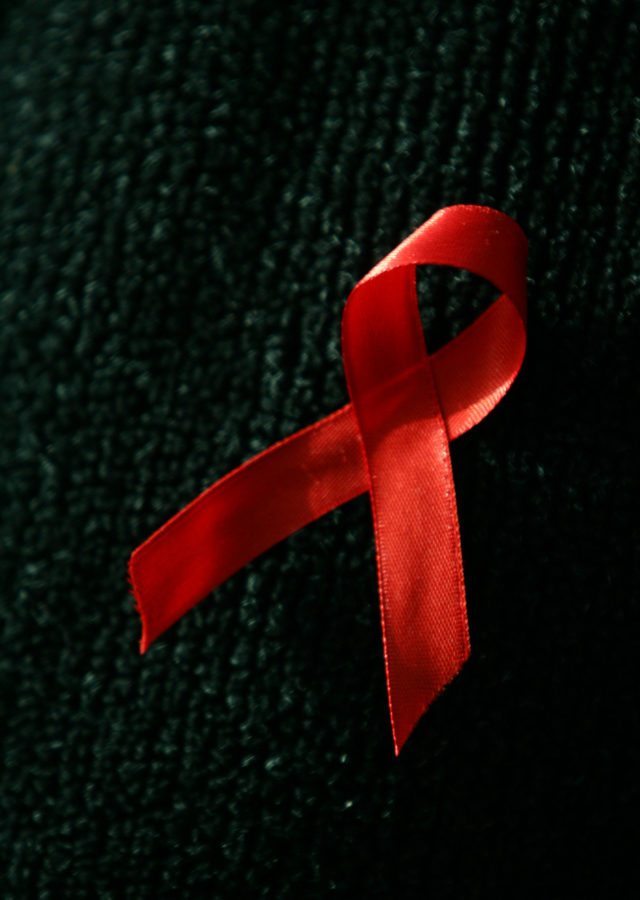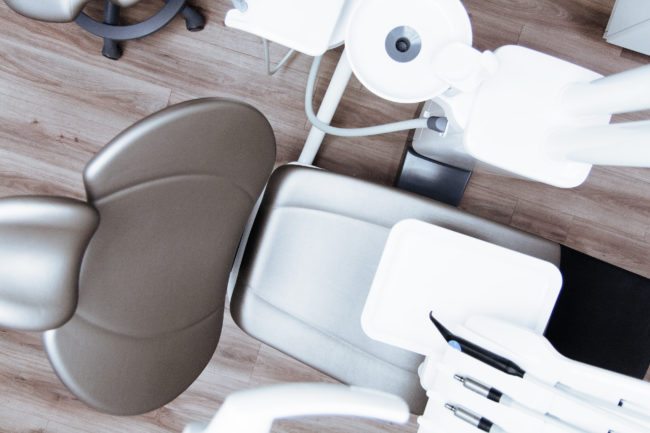Why are people living with HIV still being unlawfully discriminated against in healthcare?

Chemsex has been linked to higher rates of HIV (ESTHER LIM/AFP/Getty Images)
Lorna Barron, a solicitor at Deighton Pierce Glynn, is assisting Mark* on bringing a case to court after he was reportedly refused service at a dental practice because he is HIV positive, which was revealed in an exclusive by PinkNews.
With this in mind, she has one key question to ask: why are people living with HIV still being unlawfully discriminated against in healthcare?
Even though people living with HIV are specifically protected against discrimination under the Equality Act Mark’s* case against his dentist is just one example of a wider problem.
In January last year Mark went to register at his new local dentist. Mark says that when he arrived he completed the Medical History Form and disclosed his HIV status, but when he handed it to the receptionist, as usual, she consulted with the dentist and nurse.

Instead of being called into an appointment the nurse reportedly asked to see Mark in an open corridor where she is said to have told him that they could not see him until the last appointment of the day. Mark alleges that the nurse told him this openly even though there were strangers in the waiting room.
This apparent treatment has left Mark feeling withdrawn and unable to trust other medical staff. As a result he complained to NHS England who upheld his complaint and found that the practice had a policy of only seeing patients with specific medical conditions at the end of the day.
Following his experience, Mark decided to bring a case against his dentist to raise awareness of this problem and try to combat the stigma that people living with HIV continue to face.
How the Equality Act 2010 protects people living with HIV
The Equality Act 2010 makes it unlawful to discriminate against anyone with certain characteristics such as race, disability or sexual orientation. A disability is defined specifically in the Act as a “physical or mental impairment that has a substantial and long-term effect on… day-to-day activities”.

People living with HIV, however, are automatically protected against disability discrimination without having to prove that they meet this definition. This is important because many people living with HIV and receiving treatment, like Mark, are able to continue their day-to-day activities but still face stigma because of their HIV status.
This added protection enables HIV positive patients to uphold their right to access an equal standard of healthcare and to do so free from discrimination. It means patients can bring a case if, for example, they are refused treatment or receive a poorer standard of treatment than patients who are not HIV positive.
The Act doesn’t just protect individuals when they receive worse treatment as a direct result of their status. It also protects patients when a practice has a general policy in place that adversely affects those living with HIV. You can also use the Equality Act to get a court order to stop discrimination.
Despite this protection, the Terrence Higgins Trust reports that people living with HIV still face obstacles when accessing healthcare.
“It’s both shocking and sad that cases like this are still not uncommon within medical settings, and it’s crucial that we continue to challenge them to combat stigma, to ensure people living with HIV don’t experience unfair treatment when accessing services.

(Getty)
We absolutely support this case, and all efforts to ensure that people living with HIV are treated equally, with dignity and respect when visiting the dentist or taking part in any other kind of medical procedure,” said Ian Green, Chief Executive at Terrence Higgins Trust
Beyond the Act
This protection against discrimination goes beyond the Act. The General Dental Council, the regulatory body for dentists, sets out standards which apply to all dentists.
These standards are clear about the dental treatment of patients with blood-borne viruses: all patients should be treated fairly and not discriminated against because of their health. Failure to follow these standards may result in dentists being removed from the register.
The British Dental Association also gives clear advice to dentists to follow the same high standard of precautions against the risk of infection at every appointment, regardless of whether the patient is HIV positive.
This is important when there are a number of people living with HIV who are undiagnosed, so clearly cannot disclose their status.

”There is some evidence to suggest that some dentists are hesitant, unwilling or reluctant to treat patients falling into this group [with a blood-borne virus] … The illogical nature of this is illustrated by some people with BBV being unaware of their status; an estimated 26% of HIV and the majority of UK hepatitis B and C carriers are undiagnosed,” said a study into an attitude to patients with blood-borne viruses by the British Dental Association in 2013.
Tip of the iceberg?
It’s clear that Mark is not alone in being discriminated against in this way. Organisations like the National Aids Trust say the issue is frequently reported to them, but that patients are either not aware of their rights or do not qualify for Legal Aid to challenge this poor treatment.
“There is absolutely no reason for any special measures to be taken for HIV in a medical setting – that is what universal precautions are for. Despite this, we continue to hear enough examples of this type of poor practice that we know that this case is the tip of the iceberg,” said Deborah Gold, Chief Executive of the NAT.
Mark started a CrowdJustice campaign, an online platform to support legal cases, to do something about this widespread problem.
The reaction to this on social media also shows that Mark is not alone, with many people sharing similar anecdotes and some saying that their fear of this hostility prevents them from disclosing their status at the dentist at all.
“I have had the same experience in the past with a former dentist. I didn’t know then that it was illegal to be treated differently. Good luck with your campaign,” said one donor.
“This is exactly why I’ve never disclosed my status to my dentist,” added another.

This is particularly worrying when, as the NAT explains, sometimes dentists prescribe medication that may interact badly with HIV medication and lead to complications.
Had the practice in Mark’s case complied with their duties under the Act, and adopted universal precautions against the risk of infection, they would have avoided this form of discrimination.
It is vital that people living with HIV feel comfortable disclosing their status when accessing all forms of healthcare, safe in the knowledge that this will be kept confidential and that they won’t be treated differently as a result.
It can be challenging for an individual like Mark to keep fighting in these situations, but I hope others will be inspired to do the same and that healthcare providers will start thinking twice before they discriminate against patients living with HIV.
*Name changed to protect anonymity.
You can donate to Mark’s CrowdJustice campaign here.

